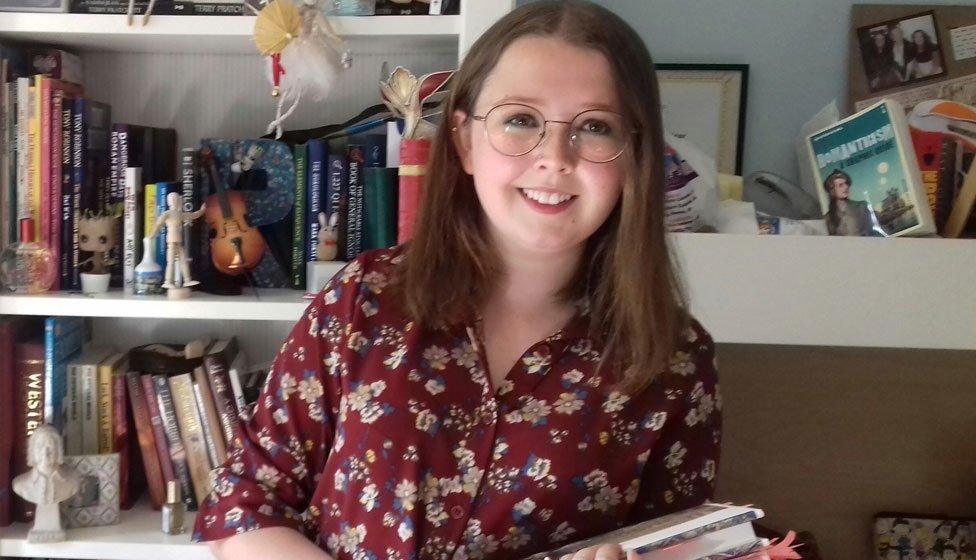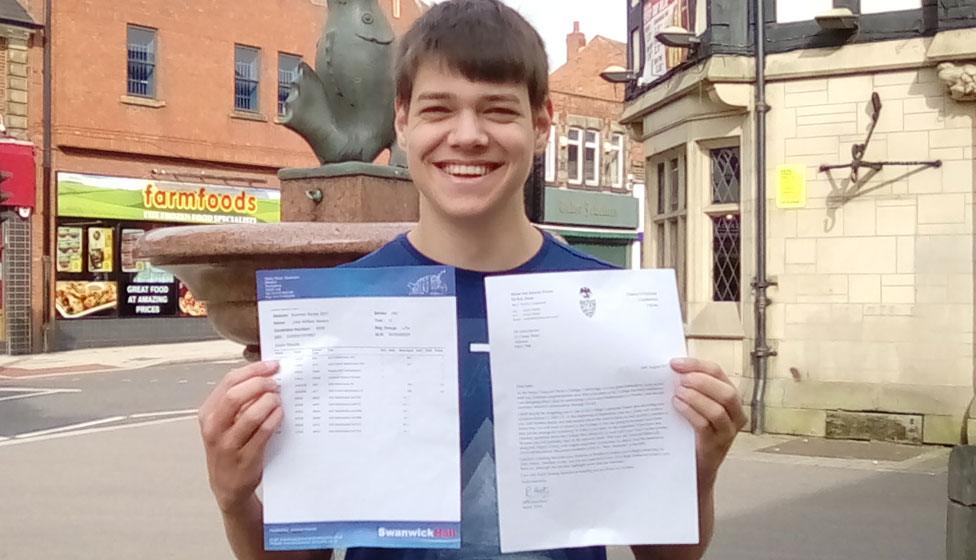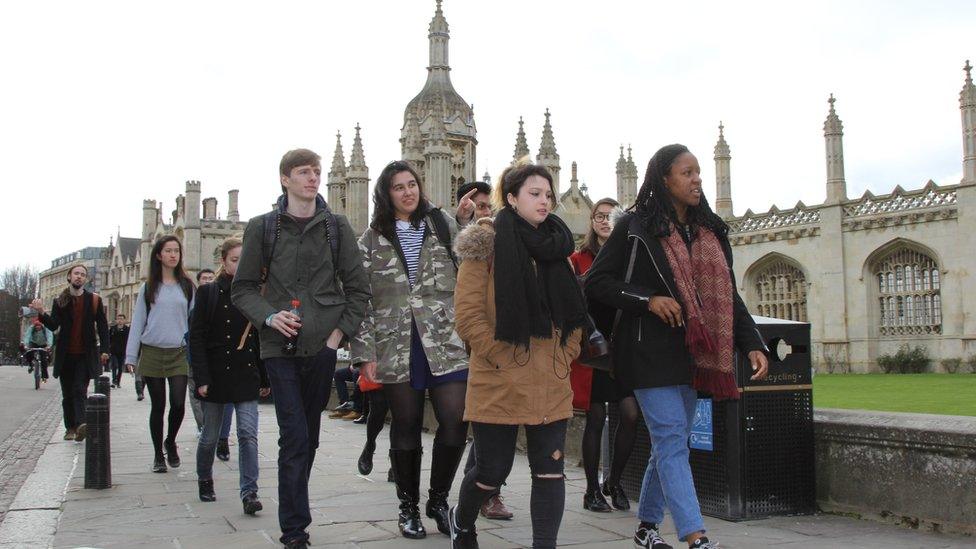Family's first student in Cambridge state school record
- Published

Rebecca Smith will be in Cambridge's biggest intake of state school pupils since the early 1980s
Rebecca Smith will begin life as a student this weekend - the first person in her family to go to university.
She'll be starting at Cambridge - and will be part of an intake that has the highest proportion of state school students for 35 years.
Along with the boxes and books she'll be taking, she's aware that such institutions have their own baggage.
"People see the buildings and it's very Harry Potter-esque, so they might think it's very snobby," she says.
But Cambridge's latest admissions figures, shown to the BBC, will reveal that more than 63% of new students are state-educated - the highest since at least 1982.
National comparisons across other universities have yet to be published - but compared with last year's figures, this would barely get Cambridge into a top 10 of the most privately educated.
"You shouldn't let where you've come from put you off," she said, a few days before taking up her place at Peterhouse, Cambridge's oldest college.
'Nothing to lose'
She describes her approach to applying as "nothing to lose, everything to gain".
The 18-year-old, from Cannock in Staffordshire, says she hadn't really thought about going to Cambridge until she began volunteering at an art gallery and met someone who had studied there.

John Severn had been at a school in special measures and is about to study maths at Cambridge
She applied to study history of art - on the principle of "just go for it and see what happens" - with support from her teachers at Cardinal Griffin Catholic High School.
And her contact with the university didn't reveal any "snobbishness".
Rather than finding the interview intimidating, she really enjoyed being able to talk with people who had similar enthusiasms.
Now she's about to start a new life, for herself and for her family.
"My parents are going through it all with me," she said.
Hard work
Also heading to Cambridge this weekend will be John Severn from Alfreton in Derbyshire.
In terms of an educational trajectory, a couple of years ago he was taking his GCSEs in a school in special measures.
"I had no idea what Oxbridge was...the option was just never in my grasp," Zareen, who is going to study at Cambridge, tells Radio 4's the World at One.
He changed school for sixth form and is now going to be the first person in his immediate family to go to university, after getting four A* grades at A-level.
Making contact with the university through open days was an important starting point, he said.
"There is a massive preconception about everyone there being basically posh," said John, who is about to start studying maths at Christ's College.
But he believes it's about hard work rather than background - and from his experience of the application process, "they're not bothered where you've been".
Nonetheless, stereotypes die hard.
"Everyone assumes that I'm going to start rowing," he says.
Demystifying applications
Despite its rise in the proportion of state school pupils, Cambridge still falls considerably below the average across UK universities, which last year stood at almost 90%.
Although last year, universities such as Oxford, Bristol, Durham and St Andrews had even lower proportions of state pupils.

Cambridge's latest recruits will be arriving this weekend
Sam Lucy, director of admissions for Cambridge, said the university's intake was becoming more representative of those getting top grades at A-level.
There are more state school students entering than since at least 1982 - and possibly several years before that, but the admissions office says comparisons before that become unreliable.
Dr Lucy attributed the increase to a great deal of outreach work, contacting schools and making links with would-be students.
She said there was still work to be done in demystifying the application process and making would-be applicants recognise that academic excellence was not the same thing as being socially exclusive.
"What might have put people off in the past with the perception that Cambridge wasn't a place for people like them."